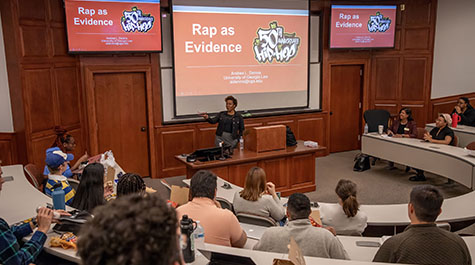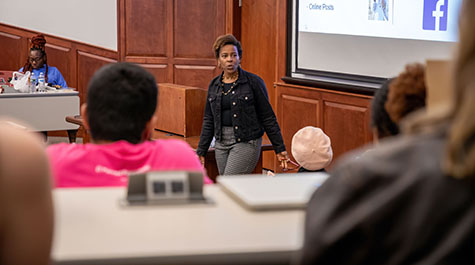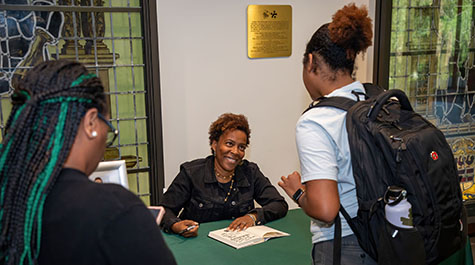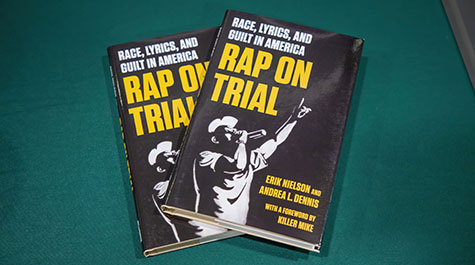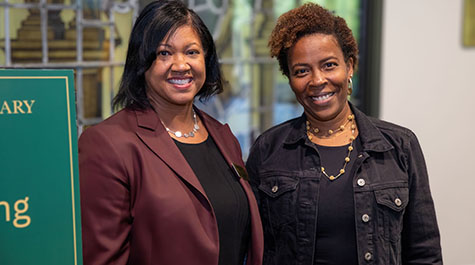Center for Criminal Justice Policy and Reform Holds Inaugural Speaker Event
On October 10, William & Mary Law School’s Center for Criminal Justice Policy and Reform held its inaugural public speaker event, with expert guest speaker Professor Andrea Dennis delivering a lecture on “Rap as Evidence.”
Dennis, the Associate Dean for Faculty Development and Professor at the University of Georgia School of Law, discussed the rising popularity of prosecutors using rap as character evidence to establish intent and motive.
According to Dennis, prosecutors have successfully argued that rap lyrics were threats of violence, evidence of gang affiliation, and confessions to a crime. Young men of color are therefore convicted of crimes with very little evidence other than rap lyrics.
Dennis explained the constitutional, evidentiary, and criminal law complications of using rap lyrics as evidence. She highlighted that this is a racial justice issue, since it criminalizes Black artistic expression. Rap lyrics are exclusively used to determine guilt, while other types of music are not.
The words “thug” and “rapper” carry negative connotations, which Dennis said exemplifies the continuation of prosecutors and judges using racialized, coded language and imagery in courts. During a trial, she explained, it is substantially prejudicial to the defendant to be labeled as a rapper.
Dennis is co-author of Rap on Trial; Race, Lyrics, and Guilt in America (The New Press, 2019), a book that goes into great detail examining the increasing use of rap lyrics as criminal evidence in determining guilt to convict young African American men. The National Book Review called it “a thoroughly researched book and a riveting read [that] sheds light on a highly damaging practice that has become an everyday occurrence in America's courtrooms.”
After her lecture, Dennis hosted a book signing during which students had an opportunity to ask questions. Several students won copies of her book through a raffle.
“The Center was happy to have Professor Dennis visit with us today,” said Kami Chavis, Director of the Center and Vice Dean and R. Hugh and Nolie Haynes Professor of Law. “This will be the first of many scholars the Center hopes to bring to campus to discuss various aspects of our criminal justice system, the nuanced issues that lead to inequality, and solutions for reform.”
This lecture is the first in the Center’s Contemporary Issues and Criminal Justice Lecture Series.
About the Center for Criminal Justice Policy and Reform
The Center for Criminal Justice Policy and Reform was founded at William & Mary Law School in 2023 under the direction of Kami Chavis, one of the leading voices in the national debate about police accountability and criminal justice reform. The Center focuses on research and programming in areas related to democratic policing, prosecutorial ethics, eliminating bias in jury selection, law enforcement and technology, and reducing violence without increasing mass incarceration.
